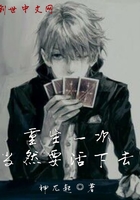"Voild encore des nouvelles," exclaimed the younger of the two ladies, quite convinced that she would attract Nekhludoff's notice by her good French.
The other lady with the bracelets kept sniffing and ****** faces, and remarked something about how pleasant it was to sit with smelly peasants.
The workmen, who felt the joy and calm experienced by people who have escaped some kind of danger, threw off their heavy bags with a movement of their shoulders and stowed them away under the seats.
The gardener had left his own seat to talk with Taras, and now went back, so that there were two unoccupied seats opposite and one next to Taras. Three of the workmen took these seats, but when Nekhludoff came up to them, in his gentleman's clothing, they got so confused that they rose to go away, but Nekhludoff asked them to stay, and himself sat down on the arm of the seat, by the passage down the middle of the carriage.
One of the workmen, a man of about 50, exchanged a surprised and even frightened look with a young man. That Nekhludoff, instead of scolding and driving them away, as was natural to a gentleman, should give up his seat to them, astonished and perplexed them.
They even feared that this might have some evil result for them.
However, they soon noticed that there was no underlying plot when they heard Nekhludoff talking quite simply with Taras, and they grew quiet and told one of the lads to sit down on his bag and give his seat to Nekhludoff. At first the elderly workman who sat opposite Nekhludoff shrank and drew back his legs for fear of touching the gentleman, but after a while he grew quite friendly, and in talking to him and Taras even slapped Nekhludoff on the knee when he wanted to draw special attention to what he was saying.
He told them all about his position and his work in the peat bogs, whence he was now returning home. He had been working there for two and a half months, and was bringing home his wages, which only came to 10 roubles, since part had been paid beforehand when he was hired. They worked, as he explained, up to their knees in water from sunrise to sunset, with two hours' interval for dinner.
"Those who are not used to it find it hard, of course," he said;
" but when one's hardened it doesn't matter, if only the food is right. At first the food was bad. Later the people complained, and they got good food, and it was easy to work."
Then he told them how, during 28 years he went out to work, and sent all his earnings home. First to his father, then to his eldest brother, and now to his nephew, who was at the head of the household. On himself he spent only two or three roubles of the 50 or 60 he earned a year, just for luxuries--tobacco and matches.
"I'm a sinner, when tired I even drink a little vodka sometimes," he added, with a guilty smile.
Then he told them how the women did the work at home, and how the contractor had treated them to half a pail of vodka before they started to-day, how one of them had died, and another was returning home ill. The sick workman he was talking about was in a corner of the same carriage. He was a young lad, with a pale, sallow face and bluish lips. He was evidently tormented by intermittent fever. Nekhludoff went up to him, but the lad looked up with such a severe and suffering expression that Nekhludoff did not care to bother him with questions, but advised the elder man to give him quinine, and wrote down the name of the medicine.
He wished to give him some money, but the old workman said he would pay for it himself.
"Well, much as I have travelled, I have never met such a gentleman before. Instead of punching your head, he actually gives up his place to you," said the old man to Taras. "It seems there are all sorts of gentlefolk, too."
"Yes, this is quite a new and different world," thought Nekhludoff, looking at these spare, sinewy, limbs, coarse, home-made garments, and sunburnt, kindly, though weary-looking faces, and feeling himself surrounded on all sides with new people and the serious interests, joys, and sufferings of a life of labour.
"Here is le vrai grand monde," thought Nekhludoff, remembering the words of Prince Korchagin and all that idle, luxurious world to which the Korchagins belonged, with their petty, mean interests. And he felt the joy of a traveller on discovering a new, unknown, and beautiful world.















